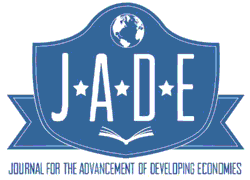Institute for the Advancement of Developing Economies

Journal for the Advancement of Developing Economies
Date of this Version
2021
Document Type
Article
Citation
Journal for the Advancement of Developing Economies 2021, Volume10 Issue 1, pp. 1-14.
doi 10.32873/unl.dc.jade1011
Abstract
An extensive body of research defines various levels of entrepreneurship and considers emerging trends. This study uses data from Global Entrepreneurship Monitor (GEM) in developing a model that measures the impact of taxes and bureaucracy on entrepreneurship. The analysis considers effects by type of firm – nascent and established – and type of economy – emerging and mature. The aim of the manuscript is to test directional impact of tax policies on entrepreneurial activity. The model utilizes counter and dichotomous variables to measure effects before, during, and after the 2008-2009 Financial Crisis. Tax policies adversely impact both nascent and established firms within an emerging economy but have a positive correlation with nascent firms in a mature economy. The fact that nascent firm development increases after the Financial Crisis suggests that tax policies may offer a foundation of support for those firms that otherwise may be burdensome.
Included in
Econometrics Commons, Growth and Development Commons, International Economics Commons, Political Economy Commons, Public Economics Commons, Regional Economics Commons


Comments
Copyright © 2021 Institute for the Advancement of Developing Economies